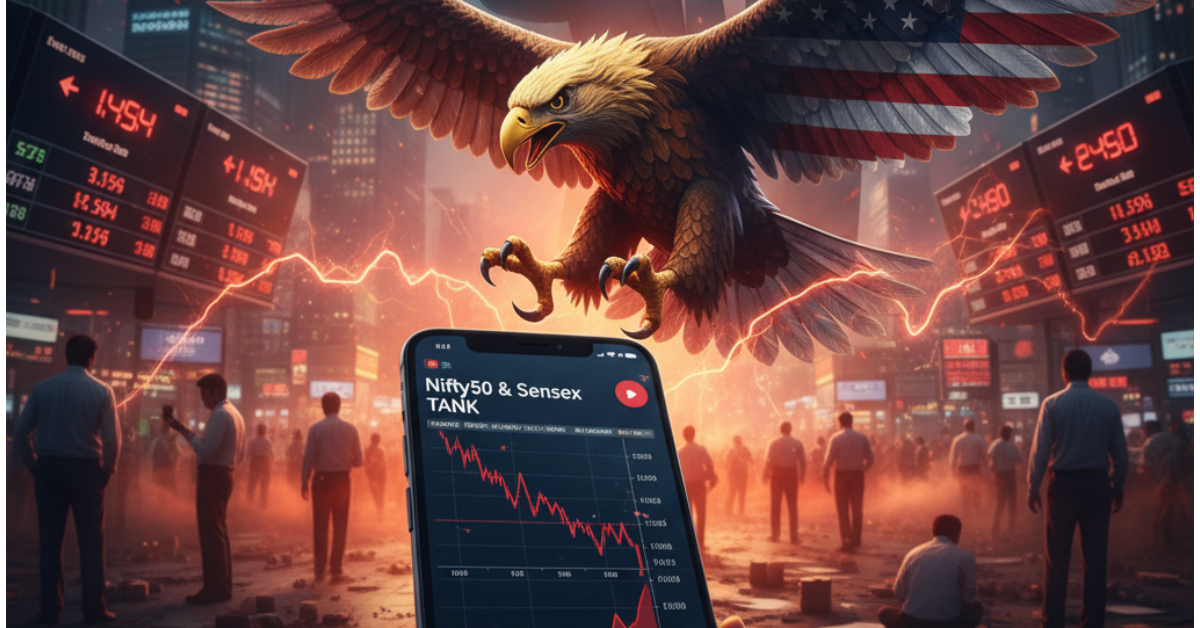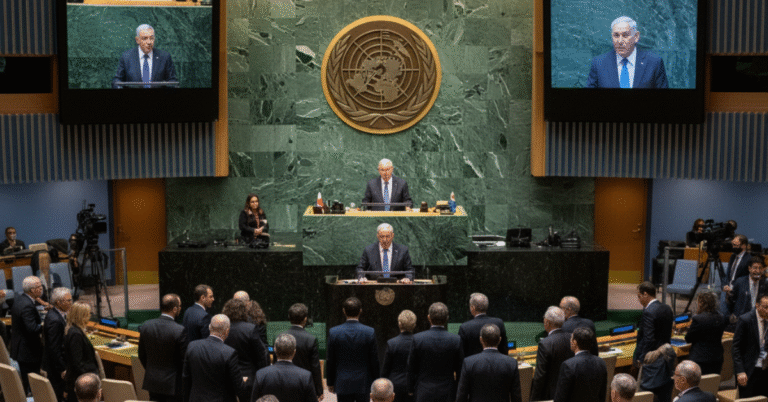
The Indian stock market recently experienced a significant drop, with both the Nifty50 and BSE Sensex indices declining sharply. This fall has been linked to several key factors, primarily driven by international economic tensions and domestic market dynamics.
1. The Impact of New US Tariffs
A major contributor to the market downturn was the imposition of new tariffs by the United States on Indian goods. With 50% tariffs coming into effect, uncertainty has grown among exporters, impacting overall market sentiment. While some analysts, such as Dr. V.K. Vijayakumar, Chief Investment Strategist at Geojit Investments, believe this impact will be temporary and the issue will be resolved, the immediate effect has been a ripple of concern through the market. Export-focused industries are expected to face short-term difficulties, leading experts to suggest a shift in investment focus toward domestic consumption sectors.
2. Continued Foreign Institutional Investor (FII) Sell-Off
The market fall was exacerbated by the persistent selling of shares by Foreign Institutional Investors (FIIs) for the third consecutive session. Exchange data revealed significant FII outflows, particularly from the financial and technology sectors. This selling momentum has been a consistent trend, with FIIs withdrawing a substantial amount of funds from the Indian market. While Domestic Institutional Investors (DIIs) have acted as a crucial counterbalance with aggressive buying, the continuous foreign sell-off has contributed to market instability.
3. Weak Global Market Indicators
Indian markets also felt the pressure of a broader global market decline. Asian markets showed weakness due to a combination of factors, including concerns over a major US technology company’s business in China amid ongoing US-China trade tensions. US stock futures also declined, and markets in Hong Kong and Japan showed volatility. This global uncertainty has led to a cautious approach among investors worldwide, impacting the Indian markets as well.
What This Means for Investors
The combination of new tariffs, FII sell-offs, and weak global cues has created a bearish environment. Market experts note that while domestic institutional support is strong, the continuous foreign outflows may make any recovery unstable. Investors are being advised to consider moving towards more stable, large-cap consumer stocks and to be cautious in the current volatile climate.






